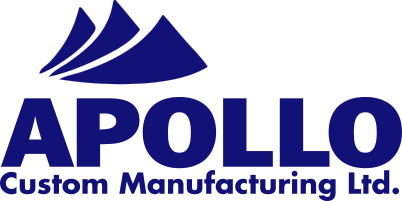The Hidden Dangers of Overseas Food Trailers: Why Buying Local Is the Smarter, Safer Choice
Published on November 3rd, 2025You know the ones. Bright, irresistible ads popping up in your feed, promising you can be the next food truck success story. All you need is one of those gleaming, round-roofed trailers — imported, affordable, and, if the captions are to be believed, turnkey. It’s easy to get swept up in the dream. A business of your own, without the sky-high price tag. What the ads don’t tell you is what happens after the money leaves your account and the trailer finally rattles off the shipping container.
We’ve seen more than a few people take that leap, expecting the hardest part would be picking their menu. That wasn’t the reality for one customer who called us in the summer of 2023. They’d already gone all-in: paid for their imported trailer, paid the hefty shipping fees to bring it across the world, and then hit a wall when it came time to deal with inspections. No matter how they tried, their new trailer just wouldn’t pass.
When they brought it to us at Apollo Custom Manufacturing, the issues were clear from the start. The appliances seemed fine at first glance, and yes, the labels claimed they were “certified.” But none of those certifications actually held up under Canadian standards. Without CSA or UL recognition, those “certified” appliances weren’t just unapproved — they were unusable. The only fix was to rip them out and start over.
But it never stops with the appliances. Every system in the trailer had problems. The electrical wiring was not only below standard, it was downright unsafe. The whole thing had to be rewired with a new panel installed — not a patch job, but a full replacement. The propane system? Same story. None of it complied with the codes you need if you’re actually planning to cook and serve food. That meant new pipes, new regulators, and a hood — not just any hood, but one properly certified to CSA/UL standards, along with a commercial fire suppression system. This was no small add-on. This was major surgery.
And still, the problems stacked up. The water tanks turned out to be far too small for the menu the customer wanted to serve, and the sinks weren’t close to regulation size. There weren’t even enough sinks to meet health requirements for the foods they intended to prepare. Every replacement was another unexpected expense.
You see it time and time again: overseas sellers with slick marketing campaigns and fine print that sounds comforting, talking up lifetime support or “worry-free” maintenance. The reality is very different. By the time you’ve spent thousands building your trailer, thousands more getting it shipped, and then are told it can’t pass inspections — or even be repaired locally, because the manufacturer is thousands of miles away and won’t return a call — the cheap price tag starts to look like a mirage.
A trailer isn’t a small investment or a side project you can just hope works out. When you can’t use or fix what you bought, you lose time, money, and a little faith in how easy the dream is supposed to be. These stories aren’t rare. We see the disappointment up close, and our advice is always the same: what looks like a deal isn’t always a deal when you add up every real-world cost. Make sure you know exactly what you’re getting, before you’re stuck with something you can’t safely use.

